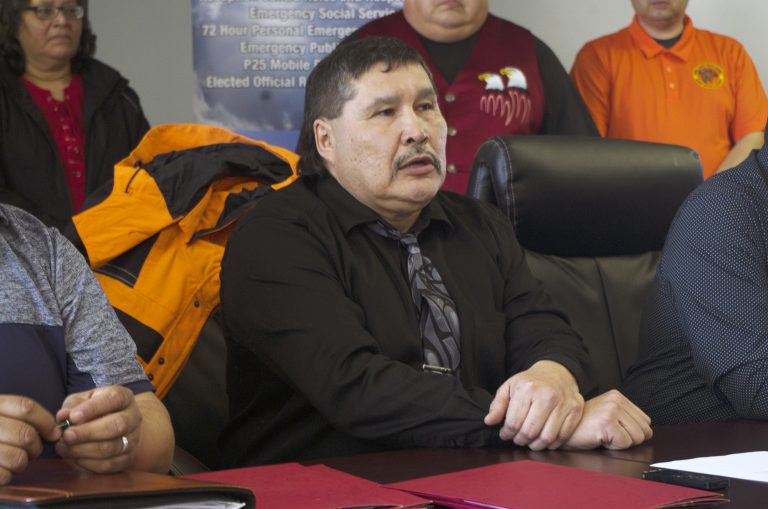
An apology from the Pope has led to mixed reactions within the local Indigenous community.
Following a week of meetings with a delegation of First Nations, Inuit, and Métis representatives from across Canada, Pope Francis extended a public apology for the Roman Catholic Church’s involvement with residential schools.
“For the deplorable conduct of these members of the Catholic Church. I ask for God’s forgiveness and I want to say to you with all my heart, I am very sorry. And I join my brothers, the Canadian bishops, in asking your pardon.” Said Pope Francis during the public gathering.
Among this delegation were members of the Métis Nation – Saskatchewan, who traveled to the Vatican to share their largely ignored perspective of residential school history. Historic compensation agreements have often omitted Métis survivors and families.
Two survivors of the Île-à-la-Crosse boarding school in northern Saskatchewan, Elders Emilien Janvier and Antoinette Lafleur, represented Saskatchewan’s Métis Nation while sharing stories of survival and resilience.
“There are many Métis who have lost our distinct ways, principles, identity, culture, values and language. Today’s apology must be followed by tangible and real action for our citizens,” said MN–S President Glen McCallum.
Leadership for the MN – S have said they would appreciate a formal acknowledgment from the Church, Federal, and Provincial governments for their role in the tragedies that occured at the Île-à-la Crosse boarding school before the survivors are gone.
The Prince Albert Grand Council (PAGC) have welcomed Pope Francis’ apology, saying they are anticipating the Pope’s promise to come to Canada and are asking the Pope to join in the continued calls for the church to disavow the papal bulls issued in 1422 and 1455 that justified the colonization of lands they had declared terra nullius, as belonging to no one.
“By taking responsibility for the harm inflicted upon generations of our people, this apology marks the first step toward healing and reconciliation, and will be vital in helping to restore and rebuild trusting relationships with our members,” said Grand Chief Brian Hardlotte.
The PAGC leadership recommends a visit to the Shrine of St. Anne where hundreds of members from PAGC communities gather every July for their annual pilgrimage to help heal the intergenerational trauma caused by residential schools.
